 JUST AFTER the report of the North Wales Child Abuse Tribunal was published in 2000, chairman Sir Ronald Waterhouse was told it was seriously flawed.
JUST AFTER the report of the North Wales Child Abuse Tribunal was published in 2000, chairman Sir Ronald Waterhouse was told it was seriously flawed.
The retired High Court judge was informed by television journalist Paddy French of allegations that a key witness had been prevented from giving evidence before the Tribunal.
Sir Ronald insisted that the meeting with the journalist — and the correspondence that followed — remain a secret.
It was only with his death in May 2011 that the story of an extraordinary encounter can finally be told.
(This article was originally published in December 2012.)
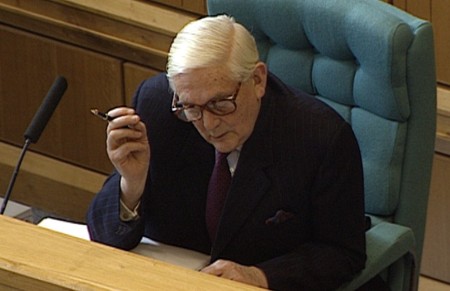
SIR RONALD WATERHOUSE
The retired High Court judge chaired the £14 million North Wales Child Abuse Tribunal. In 2000 he was told of serious allegations that the Tribunal had failed to do its job properly. Whatever he felt about those allegations, he took to his grave …
IN OCTOBER 2000 Sir Ronald Waterhouse agreed to meet Paddy French, then a journalist with the Wales This Week current affairs programme at HTV in Cardiff.
French had asked for an off-the-record briefing from the retired judge but did not specify the issues he wanted to talk about.
The meeting took place at Sir Ronald’s home in the village of Walford near Ross-on-Wye in Herefordshire.
Sir Ronald agreed to the discussion, as he put it later, because he wanted “to ease your labours as far as possible in a friendly fashion by providing answers to any queries that you had that could be dealt with quickly.”
But French had not come for a friendly chat — instead over the course of the three-hour meeting he delivered a detailed critique of the work of the Tribunal.
The following year French sent Sir Ronald a long letter summarising the conversation.
Sir Ronald replied the next day.
This article is based on this correspondence.
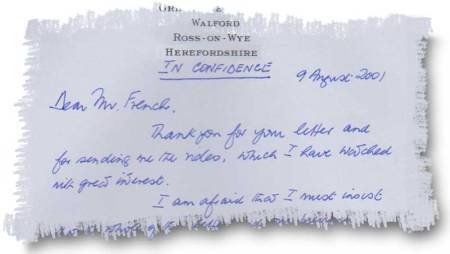
“Dear Mr French, Thank you for your letter and for sending me the video, which I have watched with great interest …”
The video was a copy of the 1997 Wales This Week programme which was censored by Tribunal staff.
Illustration: Rebecca Television
French had attended the launch of the Tribunal’s report — “Lost in Care” — in February 2000 to report on the event for a Wales This Week special that was broadcast the same evening.
When he had time to read the 937 pages of the report in the days that followed, the television journalist realised a key witness had not been heard.
Three years earlier, when he was an independent television producer, French had been asked by Wales This Week to carry out a financial investigation into the affairs of the privately-owned Bryn Alyn Community in Wrexham.
Its owner John Allen had been gaoled in 1995 for six years for indecently assaulting six boys in his care.
In the course of the investigation, the team tracked down Des Frost, John Allen’s accountant and joint number two.
The story of Des Frost will be familiar to readers — it has already been told in greater detail in the article Silent Witness.
As well as information about the Community’s shambolic financial affairs, Frost also dropped a bombshell.
He told reporters he had reported allegations that John Allen had abused six boys at the home in 1980 — more than ten years before Allen was arrested.
“What he was saying was significant,” says French.
“If it was true and he had reported his suspicions, then Allen could have been brought to justice a full decade before he was gaoled.”
“And a high-profile trial in the early 1980s might have triggered a wider police inquiry.”
Frost had not been interviewed by the Tribunal, which had already begun hearing witnesses in public.
When the Tribunal learnt Wales This Week had interviewed Frost, lawyers threatened programme-makers with contempt proceedings if they broadcast any allegations.
The section of Des Frost’s interview dealing with these allegations was removed from the programme when it was broadcast in 1997.
But when Lost in Care was published in 2000, there was no mention of Des Frost and his allegations.
“I found the disappearance of Frost from the Tribunal hard to believe,” says French.
“Wales This Week had been prevented from telling viewers about the 1980 allegations because it would interfere with the Tribunal’s hearings.”
“We thought that the Tribunal warned us off telling viewers about the allegations because they intended to hear Frost’s evidence.”
“Yet Frost was never called.”
“One of the key conclusions of “Lost in Care” was that the North Wales Police could not be criticised for the way it had handled allegations of abuse.”
“But if Frost was telling the truth and he did report his suspicions, then that conclusion has to be suspect.”
“After the publication of Lost in Care in 2000, I suggested to the Wales This Week team that we should make a programme about Frost but there was little enthusiasm.”
“It was never openly stated, but the Waterhouse report had been a vindication of many of the programmes Wales This Week had made and there was little appetite in making a programme that undermined it.”

DES FROST
The former children’s home executive claimed he reported allegations of abuse against his boss more than a decade before detectives began to investigate.
French began to investigate on his own account.
He spent many hours trawling through the transcripts of the Tribunal at the Cardiff offices of the Wales Office.
By the time he asked Sir Ronald for a meeting, his analysis of shortcomings had widened well beyond Frost and formed the basis of the series of articles that later became The Case of the Flawed Tribunal.
But Frost remained one of the major subjects of the meeting which took place between Sir Ronald and French in October 2000.
After French had laid out his account of Frost, Sir Ronald went out to make a pot of tea.
As the kettle was boiling, he came back and said he wanted to go on the record.
This is the account that French included in the five-page letter he later sent to Sir Ronald on 8 August 2001:
“Obviously our conversation was off the record — although you did go on the record to comment on the allegations made by Des Frost, accountant to the Bryn Alyn Community, that he had gone to the police in 1980.”
“Your position was that the inquiry had the local policeman’s statement: there was no indication Frost knew any more and that there was nothing he could add to the knowledge already gathered by the Tribunal team”.
Sir Ronald received this letter the next morning and his reply was posted that same day.
He was emphatic:
“I am afraid I must insist that the whole of this letter and our previous discussion shall remain confidential.”
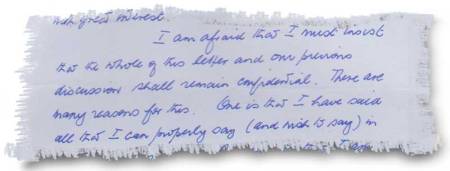
“I am afraid I must insist that the whole of this letter and our previous discussion shall remain confidential.” Illustration: Rebecca Television
In his reply, Sir Ronald made no comment about going on the record.
“What is significant,” says French, “is that he didn’t deny making the remarks”.
“And it’s not surprising he didn’t want them published,” adds French.
“It was an inadequate response: Wales This Week had broadcast the fact that Des Frost had gone to the police and I am certain that Tribunal staff were well aware of it.”
♦♦♦
THE OTHER major topics of the conversation in October 2000 were Gordon Anglesea and freemasonry.
The background to the discussion is detailed in the articles The Trials of Gordon Anglesea and A Mason-Free Zone?.
Gordon Anglesea is the retired North Wales Police superintendent who was falsely accused of abusing children at the Bryn Estyn home near Wrexham by two newspapers, the magazine Private Eye and HTV in the early 1990s.
In 1994 he won a major libel action with the quartet — he agreed £375,000 in damages and the legal costs took the bill to over £3 million.
Gordon Anglesea had been questioned about suspected child abuse in the major police investigation which took place between 1991 and 1993.
When the Tribunal began its hearings in 1997, one of the most dramatic moments came when the barrister for the North Wales Police revealed that the file sent to the Crown Prosecution Service (CPS) included a recommendation that the former police officer should be prosecuted.
The CPS decided against prosecution.
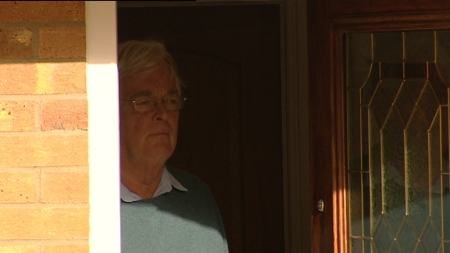
GORDON ANGLESEA
The retired police superintendent won a major libel case in the 1990s against media organisations who wrongly accused him of abusing young boys at the Bryn Estyn children’s home near Wrexham.
Photo: Rebecca Television
In his letter, Sir Ronald comments on this:
“It is correct that in relation to most individuals investigated the police did not make a recommendation to the CPS either way: the file of evidence was submitted without a recommendation in those cases.”
The defence in the libel action was unaware that North Wales Police had recommended prosecution.
Sir Ronald continues:
“I am not surprised that the police recommendation in respect of Anglesea did not emerge at the civil trial [i.e. the libel proceedings] and it seems to have been assumed that they had not recommended a prosecution.”
He then adds:
“If a sub-poena had been issued in respect of the relevant documents, Crown privilege would have been claimed (i.e. immunity from production) and it is highly doubtful whether the trial judge would have ordered that they should be produced because the issue before the jury was whether the defendants had proved that Anglesea was guilty of child abuse: to that issue the police recommendation was irrelevant in law and might well have prejudiced the jury against him.”
Gordon Anglesea is a freemason and there was a long discussion between French and Sir Ronald about the brotherhood, in particular the relationship between the police officer and the Grand Master of the North Wales Province, Lord Kenyon.
Sir Ronald’s attitude was summed up in his comment:
“I am rather sad now that you are pursuing tedious freemasons and the unhappy deceased Lord Kenyon.”
Sir Ronald said that he himself asked most of the questions about freemasonry — the barristers did not seem to be interested.
(Rebecca Television wrote to most of the leading barristers to ask if they were, or ever had been, freemasons.
None answered.)
One of the things that surprised French was that Sir Ronald was unaware that Lord Kenyon had his own masonic lodge, called Kenyon, based at his home in Gredington near Whitchurch.
Sir Ronald was also blissfully unaware that there was a police lodge in North Wales — Custodes Pacis, based in Llandudno.
French also told him the story of journalist Mark Brittain’s dealings in 1995 with Michael Argent, then chief constable of North Wales Police, over this lodge.
When Brittain met Argent, Argent denied the existence of a police lodge.
So Brittain sent him a photocopy of the lodge’s entry in the masonic yearbook.
Argent replies that, yes, Custodes Pacis does exist — but that the members are all long-retired officers.
Not so, counters Brittain, insisting there are serving members as well.
Argent now comes clean: there are four serving officers in the lodge.
In 1997 Brittain wrote to the clerk of the police authority, Leon Gibson, who was also chief executive of Anglesey County Council.
Gibson, who would not tell Rebecca Television if he is a freemason, replied to Brttain saying that the chief constable had been told by “colleagues” that the lodge did not exist.
In his letter to Sir Ronald, French said:
“You speculated that Argent’s denial may have been based on a desire to keep the existence of the lodge a secret from the Tribunal.’
French asks:
“Will you allow me to say so?”
On this, Sir Ronald was silent.
In his letter French also raises an anecdote that features in Lost In Care.
It was alleged that Kenyon had said he was determined that Gordon Anglesea would be promoted to Superintendent before his retirement.
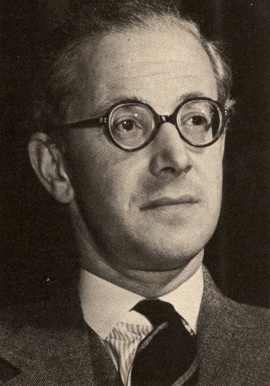
LORD KENYON
Lloyd Tyrell-Kenyon, the fifth Baron Kenyon, was Grand Master of the Masonic Province of North Wales in the 1980s. The North Wales Child Abuse Tribunal was unaware that a masonic lodge met at his home or that he officiated over the opening of a police lodge in 1984.
This, the allegation went, was in return for Gordon Anglesea’s alleged light treatment of Kenyon’s son when he was in trouble with the police.
Police could find no evidence to support the allegation of preferential treatment of Kenyon’s son.
The Tribunal concluded that the story was a “malicious rumour.”
But there is evidence that Lord Kenyon did attend a police function and expressed surprise that Gordon Anglesea had not been promoted.
The Tribunal should have known about it because its own witness interviewing team had been to see the source of it — retired Police Federation official Harry Templeton.
But Templeton’s evidence was never heard by the Tribunal.
Once again, Sir Ronald was silent on this point when he replied, insisting that he was “ … fully satisfied on the evidence available to me that neither freemasonry nor Lord Kenyon had any influence on the fate of Anglesea or anyone else in relation to child abuse.”
During the meeting with French, there was also a discussion about the role of Gerard Elias, QC as lead counsel for the Inquiry.
Elias is a member of one of the most powerful lodges in South Wales, Dinas Llandaf.
Sir Ronald did not accept that Elias was a prominent freemason:
“He is, of course, prominent in other respects but not as a freemason. He gave the Tribunal full details of his desultory membership and of his non-relationship with Gwilym Jones.”
Tory MP Gwilym Jones, also a member of Dinas Llandaf, was a Welsh Office minister when the Tribunal was established in 1996.
When Rebecca Television published The Case of the Flawed Tribunal in 2011 and 2012, the only comment carried from Sir Ronald was the one he insisted on in a later letter he wrote in April 2002:
“As far as I am concerned, I am content that you should say that you had put to me the substance of your research but that I had stated that the Tribunal had said all that it could properly say on the evidence before it in its report and that it would be both unwise and inappropriate for me to comment further.”
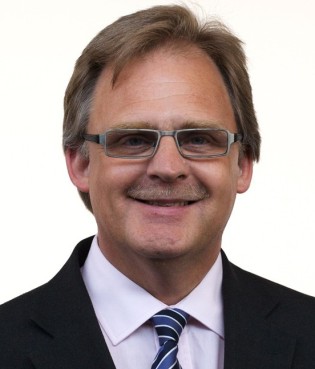
MARK ISHERWOOD
Welsh Assembly member Mark Isherwood met Sir Ronald Waterhouse at a function at the Welsh Senedd building in 2006: “He told me quite clearly that he now accepted that documentation had been withheld from the Tribunal which he chaired.” Photo: Mark Isherwood
French accepted the retired judge’s conditions.
“I agreed because I suspected he was the only person who could really help with this inquiry,” said French.
“I hoped that he would have made an entry in his diary or have left a detailed note for me after he died.”
“Sadly, when I contacted his widow after a decent interval had elapsed, she told me there was no such entry or note.”
Whatever he knew and whatever he felt, Sir Ronald Waterhouse took to the grave.
♦♦♦
© Rebecca Television 2012 & 2013
DONATIONS If you would like to support the work of Rebecca Television, you can do so by clicking on the DONATE button.
CORRECTIONS Please let us know if there are any mistakes in this article — they’ll be corrected as soon as possible.
RIGHT OF REPLY If you have been mentioned in this article and disagree with it, please let us have your comments. Provided your response is not defamatory we’ll add it to the article.
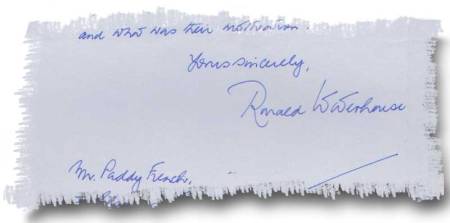


[…] The complete article can be found at Rebecca Television […]
[…] The complete article can be found at Rebecca Television […]